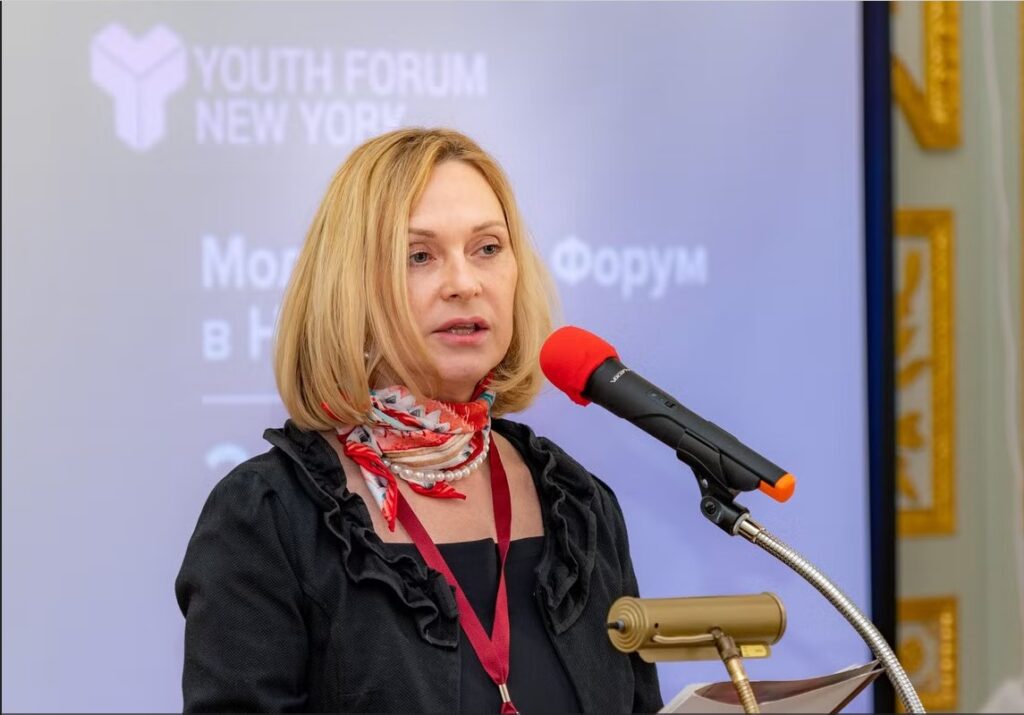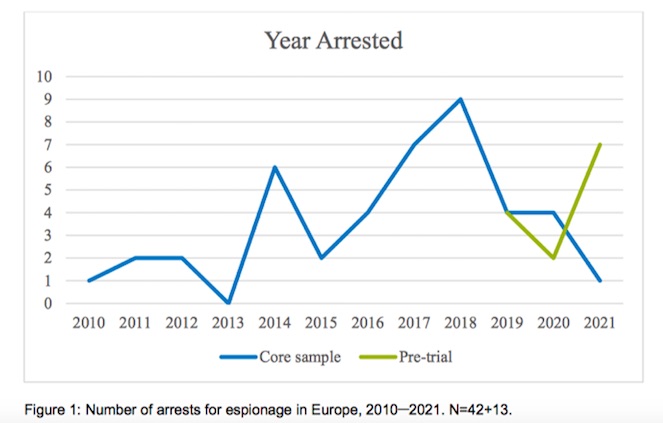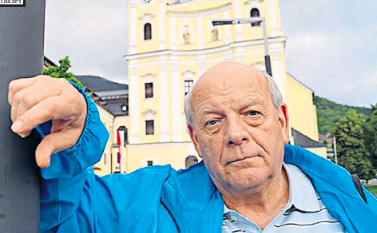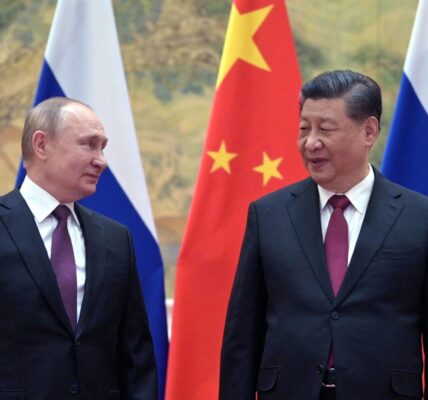Study: Influencers and Techies Moonlighting as Spies for Russia’s GRU and FSB
SPIES still have a tendency to be almost exclusively well-educated males, but the last decade has also seen influencers and techies moonlighting for the likes of the GRU and FSB.
And all but five cases which led to criminal prosecutions the country deploying the assets was Russia. China is, however, presenting an increasing challenge to Counter Intelligence (CI) agencies.
These are the main conclusions of the most comprehensive report comparing and contrasting the shadowy world of state-sponsored operatives in Europe with the U.S. between 2010 and 2021.

Pictured: Elena Branson, aka Elena Chernykh, who reported directly to Vladimir Putin.
Social influencer Elena Branson is still the most infamous of the U.S. and European agents engaged in misinformation and disinformation on behalf of the Russian state.
The New York socialite was involved in a whole host of espionage activities for more than a decade while living in Manhattan.
FBI search warrants revealed more than 34 clandestine electronic devices belonging to Branson, including 11 mobile phones. She fled back to Russia in 2020, just as the authorities in the U.S. were on the brink of arresting her.
Yesterday National Security News (NSN) how Russian influencer and war propagandist Nailya Asker-Zade staged a selfie with Elon Musk during the FIFA World Cup – which then went viral on social media.

Over the last decade in Europe there has been a significant increase in espionage, and of cases going to court. Spies were also more likely to be civilians, as opposed to military personnel, or double agent.
The 78-page report’s authors, Swedes Michael Jonsson and Jacob Gustafsson, based their findings on an analysis of European court cases involving 62 individuals, 42 of whom were eventually convicted of espionage. Of those five were Russian nationals, and the remainder were EU nationals who were persuaded to turn their backs on and betray their country of origin. Three quarters of agents were from Poland and the Baltics, but this is likely due more to the willingness of those countries to prosecute and publicise cases.
Other countries in Europe saw it is time-consuming and costly, so sought to prevent rather than prosecute espionage cases. There had also a been culture of “sweeping cases under a rug” but this had changed in recent years, most particularly after Russia annexed the Crimea, prompting an increase in prosecutions.
The overall number also included 13 who were still awaiting trial.
Ninety-five per cent of the spies either convicted or awaiting trial were men, and the median age showed them to be in their 30s, though 41 per cent didn’t engage in espionage until they entered their forties.
The study said that while the numbers themselves appear low they are “the tip of the iceberg,” and point out that the role of European and U.S. spy agencies is to prevent espionage, rather than prosecute offenders and repair any damage done. This explained why, for example, there were 100s of alleged spies in Belgium alone, but only single digit prosecutions. Bringing criminal convictions were also time-consuming and costly.
In contrast to similar studies in the United States, where most espionage involved China, the vast majority of spying in Europe (37 of 42 criminal prosecutions) involved Russia.
The study, commissioned by the Swedish Intelligence Services and the Swedish Armed Forces, split the perpetrators in to three main categories: (i) So-called expendables, mainly consisting of low-level level criminals; (ii) Insiders – assets with access to military and intelligence secrets; and (iii) Bureaucrats, influencers, and techies (individuals working in or engaged with technology).
The authors, who faced the challenge of analysing data from 30 plus separate countries, hoped the findings, particularly in light of Russia’s invasion of the Ukraine, would spark a “long overdue debate on espionage in Europe.”
They found broad similarities to studies in America, which found espionage was primarily a “male crime,” and where the engagement of women in clandestine operations came about due to their being married to other spies, or accomplices to men with security clearances.
In the U.S. previous studies had revealed that 95 per cent of spies were male, whereas the Swedish report found 91 per cent were men.
They also found, like in the US, that so-called “high value spies” with access to classified information were likely to be in their thirties or older. In these cases, the report’s authors said, their state sponsors injected “significant financial resources” into keeping them in place, and what was described as “elaborate tradecraft.”
Their findings that Russia was the main state actor, with agents operating under either GRU or FSB handlers, were “not surprising,” they said. However, what was noticeable over the course of their research, was European spy agencies reporting “a growing intelligence threat from China,” as also evidenced by a number of pending court cases.
Back in August National Security News (NSN) revealed how Chinese spy Christine Lee had escaped criminal charges despite MI5 releasing a statement naming her as an agent who had attempted to interfere with the UK Parliament.
They attributed the fact that most of the cases centred on Poland and the Baltic States to a number of factors, including better detection, legislation, as well as “the political will of Polish and Baltic leaders to prosecute and publicise them, rather than sweep them under a rug.”
There had, they said, also been a handful of cases in Germany and Nordic countries.
And while the authors said their report did not focus on the efficacy of Counter Intelligence (CI) efforts, “anecdotal evidence suggests that archaic legislation, political considerations, and lack of trust from other European intelligence agencies, may all have hampered the CI response.”
The low-level criminals, or “expendables.” Were coerced by the FSB with threats of imprisonment for their misdemeanours, and received next to nothing in remunerations for reporting back on troop movements, and critical infrastructure.
In contrast, higher value assets, were “well paid, protected by elaborate tradecraft, in service for long periods, and presumably of great value to the Russian services.”
The study also singled out the phenomenon of social media influencers, whose numbers now include assets engage in counter espionage for the Russians.
These were “pro-Russian advocates with public platforms, who also moonlighted as spies.”
Lastly they had “bureaucrats” in a category all of their own. These spies were typically in non-military and non-intelligences roles, but were still in civilian jobs which gave them access to sensitive intelligence. The report also specified the role of “techies” in spying for Russia, whose technical expertise and access was “the key collection target.”
The report also makes clear that the role of Russian spies in Europe has not been to merely acquire intelligence, but also to murder opponents, and generally to sow discord.
They included in this the assassination of former FSB agent Alexander Litvinenko in London in 2006; the attempted poisoning of Bulgarian arms dealer Emilian Gebrev in 2016; the attempted murders, again in the UK, of former GRU officer Sergei V. Skripal and his daughter Julia; and the attempted assassination in 2020 of Russian opposition politician Alexey Navalny. The report also documents cases with alleged ties to Russian security services, among them the 2019 daytime assassination of former Chechen military leader Zelimkhan Khangoshvill in Berlin; and several killings of Chechen fighters in Turkey.
Plus it mentions numerous civilian deaths were opponents of the Russian regime have died in suspicious circumstances, including former Oligarch Boris Berezovsky, found dead in the UK in 2013; former Minister of the Press Mikhail Lesin in Washington DC in 2015; former director of Aeroflot, Nikolai Glushkov, in London in 2018; and also leaked recordings suggesting the allied Belorussian KGB has plotted murders inside the EU as early as 2012, with one of the alleged targets killed by an explosion in the Ukraine.
Then there was the election meddling in the U.S. and also the UK, as well as in France and Germany.

What the report categorised as “individual motives for espionage” were difficult to ascertain. It instead referred to previous models, such as research where “the explanation is reduced to the confluence of an opportunity, a perceived life crisis, and a moral failing, which is then actuated by a trigger. Coercion was identified as the primary motive in the study, followed by money (37% of all cases).

Martin Moller
One of the convicted spies who received the most money was an Austrian army Colonel, Martin Moller, who spied for the GRU for 25 years, received Euros €280,000 over this period. As a secondary motive he was found to have held extremely right-wing anti- EU views, which correlates to pro-Russian.
The Swedish report also found that 98 per cent of the spies in its study were heterosexual. More than one in three (35%) had post graduate degrees, and in contrast to comparative American studies, the agents were older ,and from a wider ethnic background.
Only two of the convicted spies were below the age of 20, and the median age was lowered as a result of the convictions of a group of Estonian-Russian smugglers.
Contrary to perceived personal flaws in spies, drug abuse was not found to be a factor in any of the 42 spies who were prosecuted, and in only one instance was there alcohol dependency. In contrast, in almost a quarter of cases (23%) troubled personal finances played a role in recruitment.

















































































































































































